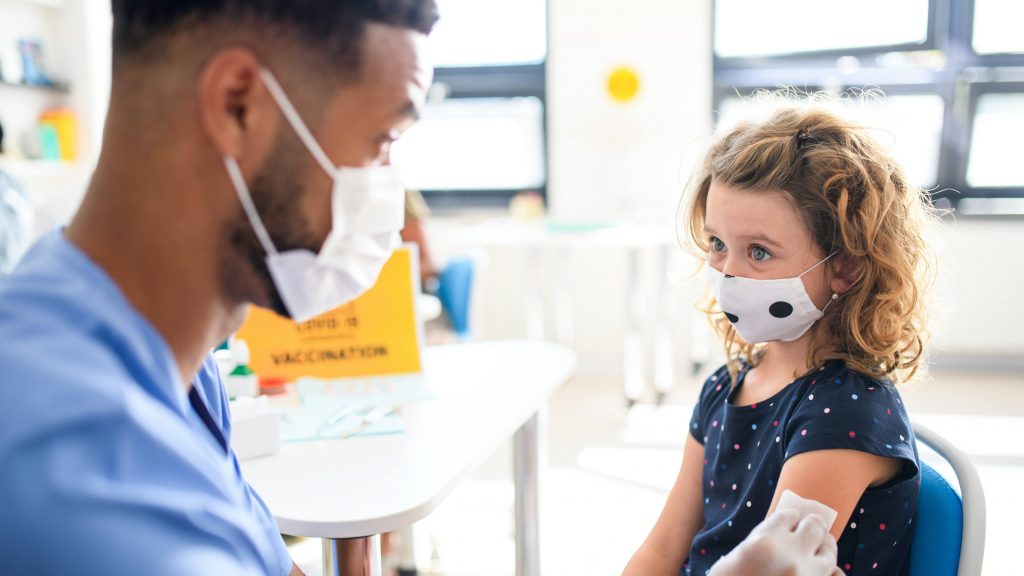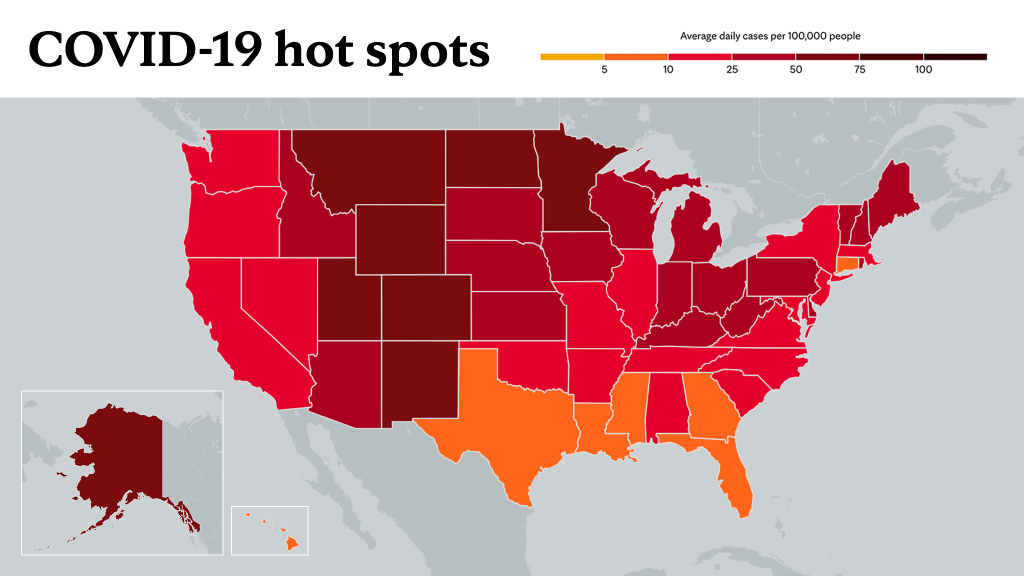
DEAR MAYO CLINIC: I have three girls, ages 6, 8, and 11. They have been attending school virtually for the past year and a half, and I have been limiting their encounters with friends and family due to COVID-19. Although I am vaccinated for COVID-19, I'm not still sure if my children should be. I'm worried about side effects and how effective the vaccine will be in young children. Do you have any advice?
ANSWER: With the Food and Drug Administration granting emergency use authorization for the Pfizer COVID-19 vaccine in children 5‒11, nearly 28 million children in the U.S. are newly eligible to be protected by COVID-19 vaccination.
Mayo Clinic and the Centers for Disease Control and Prevention's Advisory Committee on Immunization Practices strongly recommend that children 5‒11 be vaccinated for COVID-19.
Regardless of their schooling situation, your children are still at risk for exposure to COVID-19. As with other vaccinations, such as influenza, having a COVID-19 vaccination provides your children with protection from the infection and reduces their risk of getting sick. It also will reduce their risk of transmitting the infection to others, including loved ones who may have a weakened immune system or have a chronic health condition like diabetes or heart disease.
In clinical trials for children 5‒11, the Pfizer COVID-19 vaccine was found to be safe and 91% effective in helping prevent symptomatic COVID-19 infection.
Although your children are not attending school in person now, you may want them to return to in-person schooling in the future. With this age group now eligible for COVID-19 vaccination, it's expected that cases of COVID-19 in schools will decrease over time, hopefully causing fewer disruptions in schooling due to exposures and quarantines.
A misconception at the beginning of the pandemic was that COVID-19 does not affect children. However, children have been hospitalized for COVID-19, and they have died from COVID-19. Thankfully, the rate of COVID-19 infection in children is much lower than in older segments of the population.
While some of the children who were infected with COVID-19 had risk factors for more severe illness, some were otherwise healthy children who no one would have predicted to become severely ill. Children are also at risk for a rare but potentially life-threatening complication from COVID-19 known as multisystem inflammatory syndrome, or MIS-C. Currently, there's no way to prevent that complication, except to prevent the initial COVID-19 infection itself.
Also, one of the biggest benefits for having your children vaccinated is in their ability to return to some normal activities more safely. It is known that one of the most significant effects of the COVID-19 pandemic on children has been around their ability to participate in activities they enjoy, especially in-person schooling, play dates, extracurricular activities, and visiting with friends and loved ones.
All of this has had significant effects from educational and mental health perspectives. Increasing rates of mental health issues have been seen in children over the course of the pandemic — things like anxiety, depression, and feelings of social isolation.
Regardless of your decisions to participate in virtual or home school, getting children 5–11 vaccinated for COVID-19 helps them return to certain activities that they enjoy or get involved in activities they haven't been able to participate in — all with less risk of getting infected with COVID-19 and less risk of transmitting infection to others.
Side effects from getting vaccinated for COVID-19 are similar to those from other routine childhood vaccinations. They are generally mild and resolve within one or two days on their own. Possible side effects, which are normal signs that their immune system is building protection, can include pain, redness or swelling at the injection site, as well as fatigue, headache, muscle pain, chills, nausea or fever.
If side effects develop, then pain relievers can be given for comfort. Many children will have no side effects. No serious side effects in this age group were seen during the clinical trial. Ongoing surveillance will occur to detect rare events, like serious allergic reactions, or anaphylaxis, and heart inflammation that have been seen in some other age groups.
It is also important to remember that children are not considered fully immunized until two weeks after their second dose of the vaccine.
Continue to follow your local public health guidance on masking and physical distancing, even after your child has been vaccinated, as it's known that layering these prevention strategies is more effective than any single measure alone. — Dr. Nipunie Rajapakse, Pediatric Infectious Diseases, Mayo Clinic Children's Center, Rochester, Minnesota
____________________________________________
Information in this post was accurate at the time of its posting. Due to the fluid nature of the COVID-19 pandemic, scientific understanding, along with guidelines and recommendations, may have changed since the original publication date.
For more information and all your COVID-19 coverage, go to the Mayo Clinic News Network and mayoclinic.org.
Learn more about tracking COVID-19 and COVID-19 trends.








